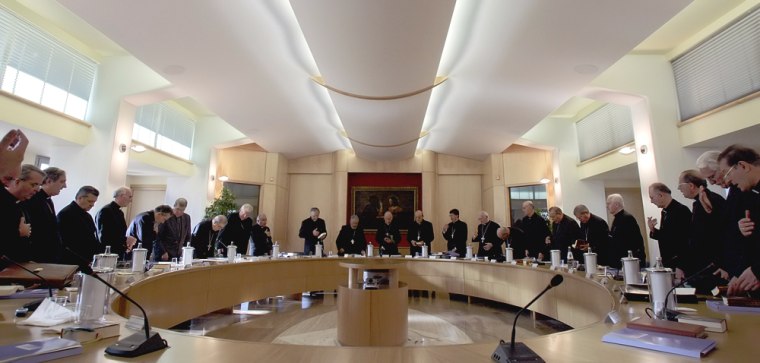A top Italian cardinal said Monday that common-law status might be applied to offer some legal protection to unmarried heterosexual couples — offering a rare exception to the Catholic Church’s condemnation of de facto unions.
Cardinal Camillo Ruini gave no indication the recognition would be extended to same-sex couples and said any protection should stop short of envisioning “something similar to a marriage.”
The comments by Ruini, president of the Italian Bishops Conference and the pope’s vicar for Rome, came amid a renewed debate over whether Italy should grant unmarried couples some form of legal recognition.
“For those unions that have the desire or the need to give legal protection to their mutual relations, there exists first of all the route of common law, (which is) very wide and can be adapted to various situations,” Ruini said before Italian bishops.
However, any such protections should not “envisage something similar to marriage, but rather remain in the domain of people’s rights and duties,” the cardinal said.
Crack in a rock-solid policy
Ruini’s remarks represented a rare exception in a debate where the church position in Italy has been rock solid. Luigi Accattoli, the Vatican correspondent of Corriere della Sera, Italy’s top newspaper, called the remarks a “small opening on unions, not on gays.”
However, Monsignor Ronny Jenkins, who teaches canon law at the Catholic University of America in Washington, said Ruini’s approach “wouldn’t be shockingly new.”
Church law already recognizes the “civil effects” of non-marital unions in providing child care and other social benefits, but distinguishes between those and “the religious character and validity” of sacramental marriage in church, Jenkins said.
Papal biographer Marco Politi told The Associated Press, “The Italian episcopal hierarchy has clearly decided to act like a political player, bypassing the role of Catholic deputies in parliament.”
Ruini “has indicated what, in the church’s opinion, is the only way: that is to say, direct agreements between two people, recognized by common law, in some cases even protection through special norms, but without accepting any model for unions than that of marriage,” Politi added.
Berlusconi rival prompts debate
The debate in Italy, an overwhelmingly Catholic country, was sparked last week when Romano Prodi, the center-left leader expected to challenge Premier Silvio Berlusconi in general elections next year, said he favored giving legal status to unmarried couples.
Prodi stopped short of proposing legalization of gay marriages, as is the case in Spain, and said he was looking to a 1999 French law that gave unmarried couples, including homosexuals, legal rights if they register their unions with the state.
Prodi was harshly criticized by the Vatican paper, L’Osservatore Romano, and even some of his center-left allies distanced themselves from his stance.
On Monday, Ruini said proposals to give legal recognition to de facto couples “are largely modeled on the institution of marriage, and envisage what might be called a ‘small marriage’: something of which there is no real need and which would produce, on the contrary, an eclipsing of the nature and value of a family and a very grave harm to the Italian people.”
Italy, where Vatican influence is strong, does not recognize unions of unmarried couples. Gay and lesbian associations have been pushing for common-law couples to have legal recognition in hopes the move might pave the way for granting legal status to gay couples as well.
Pope condemns same-sex unions
In June, Pope Benedict XVI condemned same-sex unions as anarchic “pseudo-matrimony.” Benedict, the former Cardinal Joseph Ratzinger, spearheaded a Vatican campaign against same-sex unions in 2003, issuing guidelines for Catholic politicians to oppose laws granting legal rights to gay couples when he was prefect of the Congregation for the Doctrine of the Faith.
Ruini quoted extensively from the pope’s remarks in June.
The cardinal also said that while de facto unions are on the rise in Italy, he did not believe most of them want legal recognition.
Heterosexual couples are either looking to marry, he said, or else “want to remain in a situation of anonymity, without any bonds.” Gay couples, Ruini said, “are not always looking for legal recognition: On the contrary, many run away from it on principle and want to remain an exclusively private matter.”
In defending traditional families, Ruini said they play a “great social role” and pointed to what he said was “the decisive contribution that authentic families give to the upbringing of their children.”
